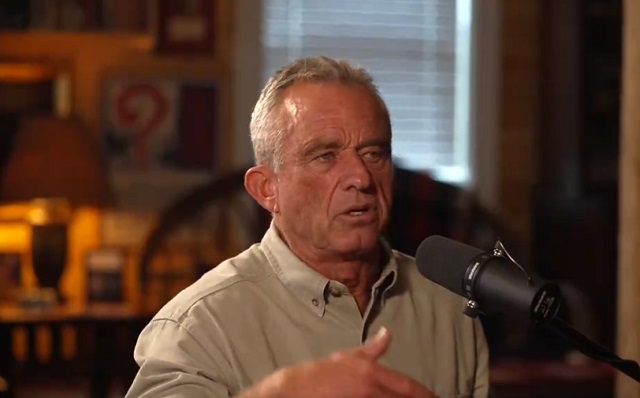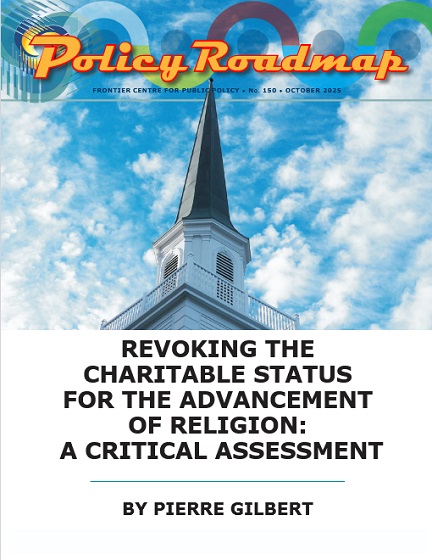Censorship Industrial Complex
Judges to decide if Robert F. Kennedy Jr. can sue Biden administration for colluding with social media companies to censor free speech

From LifeSiteNews
By Suzanne Burdick Ph.D., The Defender
The 5th Circuit U.S. Court of Appeals has heard oral arguments in the landmark censorship case, Kennedy et al. v. Biden et al.
The hearing focused on two points, Kim Mack Rosenberg, Children’s Health Defense (CHD) general counsel, told The Defender. First, the 5th Circuit is considering whether to uphold a lower court’s August decision that two of the three plaintiffs – Robert F. Kennedy Jr. and CHD – have legal standing to bring the suit.
Second, it’s considering whether to uphold the Lousiana court’s injunction, which would prohibit the Biden administration from coordinating with social media companies to censor Kennedy and CHD’s social media posts until the lawsuit is settled.
The case – brought by Kennedy, CHD, and news consumer Connie Sampognaro – alleges that President Joe Biden, Dr. Anthony Fauci, and other top administration officials and federal agencies “waged a systematic, concerted campaign” to compel the nation’s three largest social media companies to censor constitutionally protected speech.
During the October 8 hearing, Jed Rubenfeld – Yale law professor and attorney for the plaintiffs – told judges, “District court called this the most massive attack on free speech in this nation’s history, and it would be shocking if no plaintiff in the country had standing to challenge it.”
Standing is the legal doctrine that requires plaintiffs to be able to show they have suffered direct and concrete injuries and that those injuries could be resolved in court.
The issue of standing shut down another related government censorship case, Murthy v. Missouri. The plaintiffs in Murthy v. Missouri – the states of Missouri and Arkansas, Drs. Jay Bhattacharya, Martin Kulldorff, and Aaron Kheriaty, The Gateway Pundit’s Jim Hoft and health activist Jill Hines – argued that the censorship they experienced on social media could be tied to government action and that they were likely to be censored in the future. In June, the U.S. Supreme Court ruled the plaintiffs didn’t have standing to bring their case.
The Murthy – originally Missouri et al. v. Biden et al. – and Kennedy v. Biden cases were consolidated because they shared common legal and factual issues. This allowed them to share processes, such as discovery of evidence. However, they continued to be heard and ruled on separately.
The plaintiffs in Kennedy v. Biden are much more likely to be able to prove standing than the Murthy v. Missouri plaintiffs, Mack Rosenberg said:
With the Supreme Court’s decision in Murthy v. Missouri in the forefront on the issue of standing, we believe that the plaintiffs in our action have clearly demonstrated standing more than sufficient to meet the requirements the Supreme Court described in Murthy in June.
Mack Rosenberg said there is clear evidence that plaintiffs Kennedy and CHD were specific targets of censorship and that they continue to be censored. “CHD in particular continues to be deplatformed from major social media sites with no end in sight.”
She said the facts “demonstrate that the injunction issued by Judge Doughty was appropriate given the circumstances and the government’s continued actions.”
Legal battle has dragged on for over a year
Tuesday’s hearing was the latest development in a class action lawsuit brought by Kennedy, CHD, and Sampognaro on behalf of more than 80 percent of U.S. adults who access news from online news aggregators and social media companies, primarily Facebook, YouTube, and Twitter (now X).
The suit was filed on March 24, 2023, in the U.S. District Court for the Western District of Louisiana.
The case alleged that key officials and federal agencies in the Biden administration violated the plaintiffs’ First Amendment rights by censoring online speech disfavored by the government.
According to the complaint, “the federal government’s censorship campaign has repeatedly, systematically, and very successfully targeted constitutionally protected speech on the basis of its content and viewpoint.”
Nearly a year later, U.S. District Judge Terry Doughty issued a preliminary injunction prohibiting key Biden administration officials and agencies from coercing or significantly encouraging social media platforms to suppress or censor online content containing protected free speech.
However, Doughty stayed the injunction until the U.S. Supreme Court ruled on a similar injunction in the Murthy v. Missouri case.
After the Supreme Court on June 26 ruled in favor of the Biden administration in Murthy v. Missouri, Doughty on July 9 denied two motions by lawyers for the Biden administration seeking to overturn the preliminary injunction.
Less than 24 hours later, Biden administration lawyers filed an emergency motion with the 5th Circuit, seeking to block the injunction.
The 5th Circuit on July 25 sent the case back to the Louisiana District Court to decide if Kennedy, CHD, and Sampognaro have standing to bring the suit. The 5th Circuit also stayed the injunction while the case was being revisited by the District Court.
The District Court on August 20 gave the plaintiffs the green light to bring their suit, ruling that Kennedy and CHD had standing. Doughty concluded that plaintiff Sampognaro does not have standing.
Lawyers disagree on whether plaintiffs have standing
In Tuesday’s hearing, U.S. Department of Justice (DOJ) attorney Daniel Tenny argued on behalf of the defendants, saying that the Murthy v. Missouri decision “foreclosed” the plaintiffs’ theories on why the plaintiffs have standing.
Rubenfeld disagreed, saying that Kennedy v. Biden plaintiffs differ in key ways from the Murthy plaintiffs. First, unlike the Murthy plaintiffs, the Kennedy v. Biden plaintiffs have a “specific causation finding,” meaning there is clear evidence that “government defendants, through threats, caused the deplatforming and censorship that they suffered.”
Second, the Kennedy v. Biden plaintiffs have evidence of ongoing injury, not just past injury:
CHD’s deplatforming – which happened a couple of years ago – is exactly the same right now, unchanged in status as it was then. In other words, the government defendants are directly responsible for the injury that CHD is currently suffering.
“Number three,” Rubenfeld said, “we have specific evidence of, in the event of a favorable ruling from this court, a significant increase in the likelihood of our plaintiffs receiving relief.”
“That’s the established test for redressability,” he said. Redressability means that the plaintiffs’ alleged injuries are likely to be redressed if the court grants the relief the plaintiffs are seeking.
Right now there is zero likelihood that CHD will get relief, Rubenfeld said. “CHD has been litigating against Facebook for years. They have not reinstated them.”
If the 5th Circuit issues a ruling that Facebook’s actions were likely unconstitutional and that will likely be unconstitutional if Facebook keeps on doing it, “that changes [Facebook’s] incentive and that increases the likelihood that [CHD] will be reinstated.”
In their brief, plaintiffs’ attorneys also argued that Sampognaro, who is potentially immunocompromised, has what’s called “right-to-listen standing” because she needs access to accurate information about COVID-19 and possible treatments, and the censorship has obstructed that access.
Tenny urged the court to continue blocking the District Court’s injunction. Rubenfeld argued the injunction is needed because U.S. governmental agencies are “still today” trying to influence social media platforms “to suppress speech that they deem, they call misinformation.”
He added, “But we have seen over and over again that what they call misinformation often doesn’t turn out to be misinformation and turns out to be protected speech.”
The DOJ declined The Defender’s request for comment on October 8’s arguments.
This article was originally published by The Defender – Children’s Health Defense’s News & Views Website under Creative Commons license CC BY-NC-ND 4.0. Please consider subscribing to The Defender or donating to Children’s Health Defense.
Censorship Industrial Complex
Canada’s privacy commissioner says he was not consulted on bill to ban dissidents from internet

From LifeSiteNews
Privacy Commissioner Philippe Dufresne that there was no consultation on Bill C-8, which is touted by Liberals as a way to stop ‘unprecedented cyber-threats.’
Canada’s Privacy Commissioner admitted that he was never consulted on a recent bill introduced by the Liberal government of Prime Minister Mark Carney that became law and would grant officials the power to ban anyone deemed a dissident from accessing the internet.
Privacy Commissioner Philippe Dufresne said last week that in regard to Bill C-8, titled “An Act respecting cyber security, amending the Telecommunications Act and making consequential amendments to other Acts,” that there was no consultation.
“We are not consulted on specific pieces of legislation before they are tabled,” he told the House of Commons ethics committee, adding, “I don’t want privacy to be an obstacle to transparency.”
Bill C-8, which is now in its second reading in the House of Commons, was introduced in June by Minister of Public Safety Gary Anandasangaree and has a provision in which the federal government could stop “any specified person” from accessing the internet.
All that would be needed is the OK from Minister of Industry Mélanie Joly for an individual to be denied internet service.
The federal government under Carney claims that the bill is a way to stop “unprecedented cyber-threats.”
The bill, as written, claims that the government would need the power to cut someone off from the internet, as it could be “necessary to do so to secure the Canadian telecommunications system against any threat, including that of interference, manipulation, disruption, or degradation.”
While questioning Dufresne, Conservative MP Michael Barrett raised concerns that no warrant would be needed for agents to go after those officials who want to be banned from the internet or phone service.
“Without meaningful limits, bills like C-8 can hand the government secret, warrantless powers over Canadians’ communications,” he told the committee, adding the bill, as written is a “serious setback for privacy,” as well as a “setback for democracy.”
Barrett asked if the goal of the bill is for Parliament to be granted “sweeping powers of surveillance to the government without a formal review?
Dufresne said, “It’s not a legal obligation under the Privacy Act.”
Experts have warned that Bill C-8 is flawed and must be “fixed.”
The Canadian Civil Liberties Association (CCLA) blasted the bill as troublesome, saying it needs to “fix” the “dangerous flaws” in the bill before it becomes law.
“Experts and civil society have warned that the legislation would confer ministerial powers that could be used to deliberately or inadvertently compromise the security of encryption standards within telecommunications networks that people, governments, and businesses across Canada rely upon, every day,” the CCLA wrote in a recent press release.
Canada’s own intelligence commissioner has warned that the bill, if passed as is, would potentially not be constitutionally justified, as it would allow for warrantless seizure of a person’s sensitive information.
Since taking power in 2015, the Liberal government has brought forth many new bills that, in effect, censor internet content as well as go after people’s ability to speak their minds.
Recently, Canadian Conservative Party MP Leslyn Lewis blasted another new Liberal “hate crime” bill, calling it a “dangerous” piece of legislation that she says will open the door for authorities to possibly prosecute Canadians’ speech deemed “hateful.”
She also criticized it for being silent regarding rising “Christian hate.”
Censorship Industrial Complex
Winnipeg Universities Flunk The Free Speech Test

From the Frontier Centre for Public Policy
By Tom Flanagan
Frances Widdowson faced mob hostility for saying unmarked graves have yet to be proven
Dr. Frances Widdowson’s visit to Winnipeg on Sept. 25 and 26 should have been an opportunity for debate. Instead, the city’s universities endorsed a statement that undermines academic freedom.
Widdowson, a political scientist known for questioning official narratives about residential schools, came to meet students who wanted to ask about claims of “unmarked graves.” Those claims, which became national headlines in 2021 after ground-penetrating radar surveys at former school sites, remain unproven because no physical evidence of burials has been found.
For many Canadians, the claims of “unmarked graves” were a shocking revelation, given how widely the story was reported as a settled fact.
That context alone should have been enough to spark discussion. Instead, the University of Manitoba and the University of Winnipeg joined the Assembly of Manitoba Chiefs in issuing a statement that should embarrass both schools. At institutions dedicated to study and inquiry, the instinct should be to ask more questions, not to shut them down.
At first, the statement sounded reasonable. It said the universities did not “condone violence or threats to anyone’s safety.” But that did not stop Widdowson from being roughed up by a mob at the University of Winnipeg. It would be refreshing if the universities condemned mob violence with the same urgency they condemned a professor answering questions. Their silence sends its own message about which kind of behaviour is tolerated on campus.
The bigger problem is the statement’s claim that there is a single “truth” about residential schools, known to “survivors,” and that questioning it amounts to “denial.” In reality, 143 residential schools operated with federal support for more than a century. What happened varied widely from place to place and decade to decade.
That is a subject for historical research, grounded in evidence and debate, not pronouncements about capital-T “Truth” issued by communications offices. Canadians deserve to know that history is still being studied, not declared untouchable.
Worse still was the statement’s promise to “press the Government of Canada to enact legislation that makes residential school denialism a crime.” The Assembly of Manitoba Chiefs is free to say what it wants. But universities lending their names to a demand that historical inquiry be criminalized is beyond misguided; it is dangerous.
Criminalizing “denialism” would mean that even challenging details of the residential school record could be punishable by law. Canadians should think carefully before accepting laws that turn historical debate into a criminal offence.
The University of Chicago’s widely praised statement on academic freedom puts it well: “the University’s fundamental commitment is to the principle that debate or deliberation may not be suppressed because the ideas put forth are thought by some or even by most members of the University community to be offensive, unwise, immoral, or wrong-headed. It is for the individual members of the University community, not for the University as an institution, to make those judgments for themselves.” That principle should also guide Canadian universities. Academic freedom is not a luxury; it is the foundation of higher education.
Worst of all, these positions were not even issued in the names of presidents or academic leaders. They were issued under “media relations.” Imagine being a serious scholar or scientist at one of these universities and discovering that the media office had taken a political stance on your behalf.
I know how I would feel: undermined as a professional and silenced as a citizen.
Tom Flanagan is a professor emeritus of political science at the University of Calgary and a Fellow of the Royal Society of Canada. He is a senior fellow at the Frontier Centre for Public Policy and co-editor of the best-selling book Grave Error: How the Media Misled Us (and the Truth about Residential Schools).
-

 Energy2 days ago
Energy2 days agoIndigenous Communities Support Pipelines, Why No One Talks About That
-

 Alberta2 days ago
Alberta2 days agoOil Sands are the Costco of world energy – dependable and you know exactly where to find it
-

 Business2 days ago
Business2 days agoFinance Committee Recommendation To Revoke Charitable Status For Religion Short Sighted And Destructive
-

 International2 days ago
International2 days agoNumber of young people identifying as ‘transgender’ declines sharply: report
-

 Alberta1 day ago
Alberta1 day agoThe Technical Pitfalls and Political Perils of “Decarbonized” Oil
-

 National14 hours ago
National14 hours agoDemocracy Watch Renews Push for Independent Prosecutor in SNC-Lavalin Case
-

 Health2 days ago
Health2 days agoColorado gave over 500 people assisted suicide drugs solely for eating disorders in 2024
-

 Censorship Industrial Complex1 day ago
Censorship Industrial Complex1 day agoCanada’s privacy commissioner says he was not consulted on bill to ban dissidents from internet






